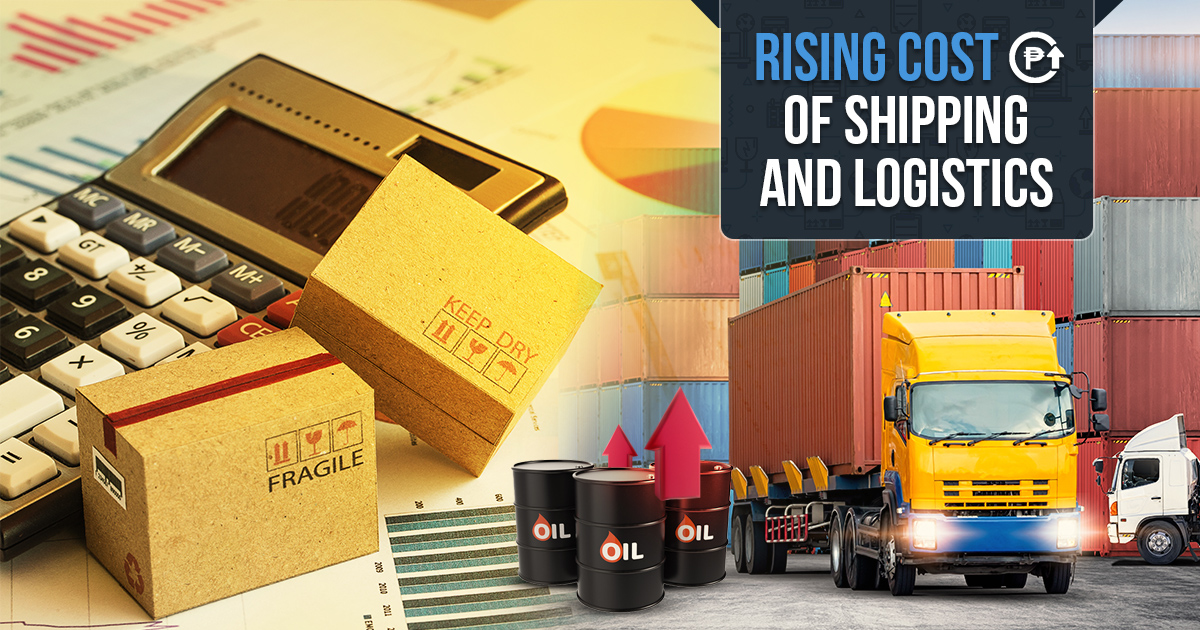
The shipping and logistics industry has been feeling the heat of inflation for some time now. The direct proportionality of high shipping costs and high commodity prices has made it difficult for businesses in this industry to maintain profitability. In this article, we will discuss the impacts of inflation on the shipping and logistics industry and look into ways to mitigate these effects.
What Causes Inflation?
Inflation is the rate of rising prices in an economy. Inflation can harm society by increasing the cost of necessities such as food. It also causes a decrease in the purchasing power of consumers. When inflation is high, each peso you have will buy fewer goods and services.
There are different types of inflation:
- Demand-pull inflation
This happens when there’s more money chasing after limited goods and services. It occurs when people earn more money and want to spend it on available goods, bidding up prices.
- Cost-push inflation
This happens when the cost of making a product goes up. For example, if crude oil prices rise, gas prices rise, and transportation costs increase. This can lead to higher prices for many items in the store.
- Structural inflation
An imbalance in the economy causes this. For example, it can happen when there’s a high demand for workers in a particular field, leading to wage increases.
How Can Inflation Affect The Price of Basic Commodities?
Inflation has a direct impact on the prices of basic commodities. For example, when the cost of shipping and logistics goes up, so does the price of commodity goods. These companies must factor in their increased costs when setting product prices.
In addition, inflation can also lead to higher interest rates, making it more expensive for companies to borrow money for expansion or other projects. As a result, inflation can indirectly impact commodity prices by making it more costly for companies to produce them.
What Does This Mean For Consumers?
Higher commodity prices can lead to higher inflation, leading to higher interest rates and an overall decrease in consumer purchasing power.
What Is the Rate of Inflation in the Philippines?
The rate of inflation in the Philippines is currently at a five-year high. The main drivers of this inflation are fuel and food prices. This has led to an overall increase in the cost of living, putting pressure on household budgets.
Inflation affects consumers and businesses, particularly those in the shipping and logistics industry. Higher fuel and commodity prices directly impact shipping costs, which ultimately get passed on to customers through higher prices for goods and services.
How Does Inflation Affect Shipping and Logistics?
Inflation affects shipping and logistics in multiple ways. The most direct way is through the prices of commodities. When the cost of crude oil goes up, fuel costs increase, and so do the costs of shipping goods. This can ripple effect, leading to higher prices for many consumer goods.
Inflation can also impact shipping and logistics indirectly. For example, if inflation leads to wage increases, companies may pass on those costs to consumers through higher prices. In addition, high inflation can lead to economic instability, disrupting supply chains and delays in shipping goods.
What Can Be Done to Mitigate the Effects of Inflation?
There are many things that companies can do to mitigate the effects of inflation:
- Diversify your supplier base: This can help you avoid disruptions if one supplier experiences an increase in costs.
- Hedge against commodity price increases: This can help protect your margins if the cost of raw materials increases.
- Pass on costs to customers: If you must raise prices, be transparent about why you’re doing it and give customers as much notice as possible.
- Invest in automation: This can help reduce labor costs, increasing in times of high inflation.
Inflation can have a significant impact on shipping and logistics. However, understanding how it works and taking steps to mitigate its effects can help protect your business from the potential disruptions it can cause.
SEE ALSO:
